Ancient kingdom, modern procurement: Edo State, Nigeria’s lessons from going digital and open in public contracts
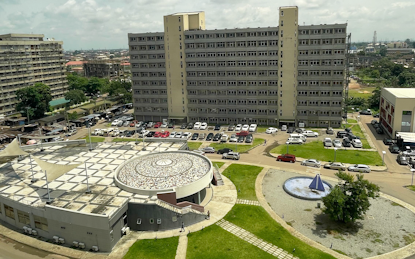
Challenge: Edo State is a fast-developing, major state in Nigeria with a rich heritage and a population of about four million people. Yet its procurement system was paper-based, slow and vulnerable to political interference and inefficiencies affecting the delivery of goods, works and services to citizens and undermining public trust.
Open contracting approach: Edo State’s public procurement agency (EDPPA) transitioned from a paper-based system to electronic procurement in 2021 as part of the World Bank funded-Nigeria Governors’ Forum States Fiscal Transparency, Accountability, and Sustainability (SFTAS) project. The project offered a cloud-based Software-as-a-Service (SaaS) e-procurement platform for the state to transact with vendors. This involved systematic change management and capacity building both within the EDPPA and then with line ministries and other government users to adapt to a new workflow around procurement.
As well as a transactional e-GP system, EDPPA now publishes its procurement information as open data on a public portal, bringing together complete contracting records in one place for analysis. OCP supported them to do this and to track and improve the internal efficiency of the whole contracting process, prioritizing key public facing services like education. Currently, the data is uploaded manually but work is now commencing to make it automatic.
To increase public oversight and agency, the EDPPA began to engage with civil society organizations and journalists on cooperative reforms to its procurement practices through training and outreach events.
Results: In total, the EDPPA has published data about 600 processes worth 91.6 bn Naira ($205m) between 2018-2022 from 31 agencies. The agency trained nearly 50 officials on publishing procurement data on the open contracting portal to increase the data quality and the number of Ministries, Departments and Agencies (so called MDAs) using the service. Published information now covers the planning, tender, award, and contract stages of the procurement process, enabling the agency to track key performance indicators across the entire contracting process as opposed to just three stages of contracting as it was under the SaaS e-GP.
Civic organizations like Accountability Lab Nigeria and Dataphyte are using the data, training 20 journalists and CSOs on contract monitoring, and have begun supporting data driven investigations into procurement problems.
A reliance on external financing for developing and maintaining their systems remains a threat to the reforms.
Edo State in South-South Nigeria is the modern region of the ancient Great Benin City. From palm oil-fuelled street lights to underground drainage systems and city walls four times longer than the Great Wall of China, the lost kingdom was already providing advanced public infrastructure and services as far back as the 11th Century.
Inefficient, opaque, and paper-based public procurement is still the norm across many states in Nigeria. As Henry Idogun, the Managing Director of Edo State’s Public Procurement Agency (EDPPA), says: “Human interference in public procurement is the root of corruption. An e-government procurement system can help address that.” So Edo was one of Nigeria’s first states to digitize its procurement processes from planning to implementation joining a major initiative of the World Bank and the Nigerian Governors Forum in 2018, to modernize and digitize procurement at the state level in Nigeria.
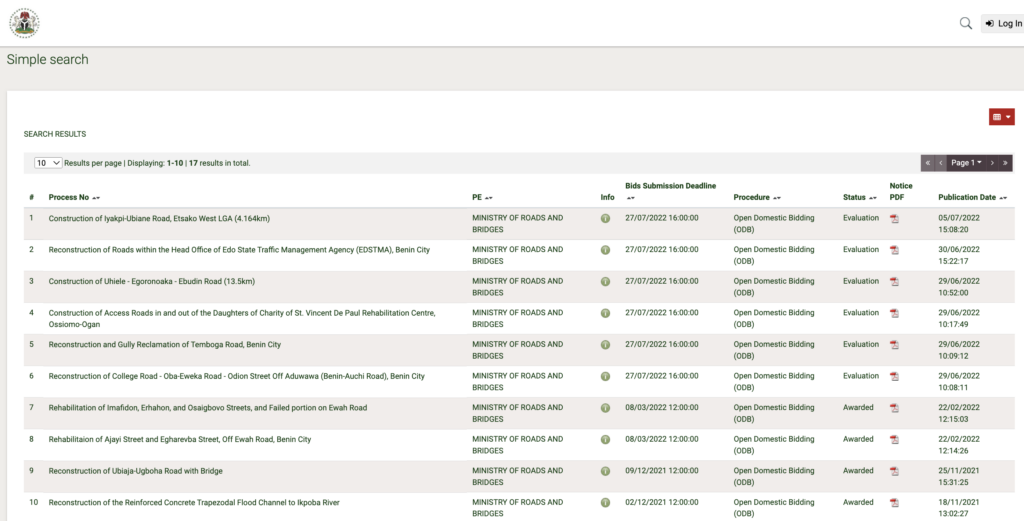
At the core of the initiative, under the States Fiscal Transparency, Accountability, and Sustainability (SFTAS) project, EDPPA is using an off-the-shelf Software-as-a-Service (SaaS) solution that provides a cloud-based e-procurement solution made available over the web with no local hosting or installation required, and with very limited customization. The upside of this approach is very rapid deployment and scaling of the approach, especially across many very different Nigerian States and where technical and IT capacity is very low (for example the EDPPA has just one full time team member doing IT support). The downside is that ‘one size fits nobody’ and the different states have to align their needs and procurement laws to the configuration of the software rather than the other way around. We analyzed the pluses, minuses and lessons learned from this approach more in our recent report on ‘Fulfilling the promise of e-procurement reforms in Africa’ available here.
Adoption and use of the new e-GP system was hard at first and the data entered was poor, with challenging connectivity and capacity issues, and there has been resistance to change internally and in line ministries and agencies. To address this, the EDPPA instituted a change management committee made up of champions and future leaders who are engaging colleagues, offering support and making the case for how better procurement matters for Edo state. The EDPPA also deployed a team of ‘super users’ to four key public service ministries covering Infrastructure, Health, Education, and Public Building and Maintenance – which cover more than 60% of the Edo government’s budget – to provide technical assistance to the government staff there as well as providing guides and manuals for using the new e-GP system, enabling officers to troubleshoot the system themselves.
Early feedback from vendors and contractors is positive. Elvis Ahior, the Managing Partner of a local vendor called Quebec Concepts told us: “The e-GP portal is quite easy to use—from notifications of bidding opportunities to the ability to respond via a simplified virtual workspace that supports uploads of the necessary documents. I must commend the Edo PPA for the giant stride in digitizing our procurement system which has made the bidding process easier and faster for vendors.”
Edo PPA open contracting portal
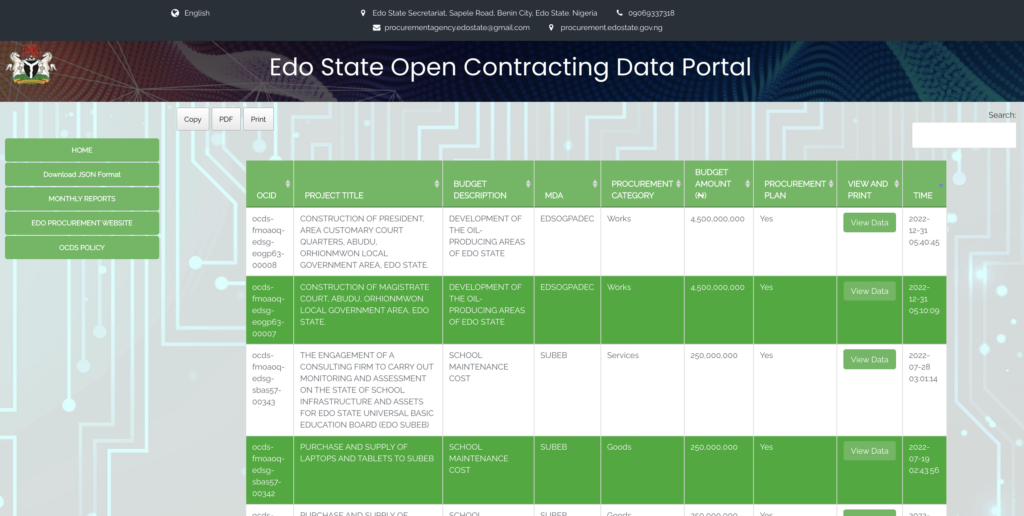
As well as through the transactional SaaS e-GP, the Edo PPA also built a public open contracting portal to provide structured records and information about the state’s procurement. Edo PPA especially wanted to have comparative data across all the state’s procurements to track project performance, manage risks and measure timelines for payments and deliveries. The SaaS platform covered the tender and award part of procurement but not the payment and implementation of contracts which EDPPA also felt was vital to better service delivery to citizens.
To that end, OCP supported them to build an open data portal to bring together the key information across the entire cycle of the state’s procurement and to prioritize the indicators that could be calculated with the available procurement data, as well as helped them plan how they might collect the additional data that they wanted to track for their priority use cases.
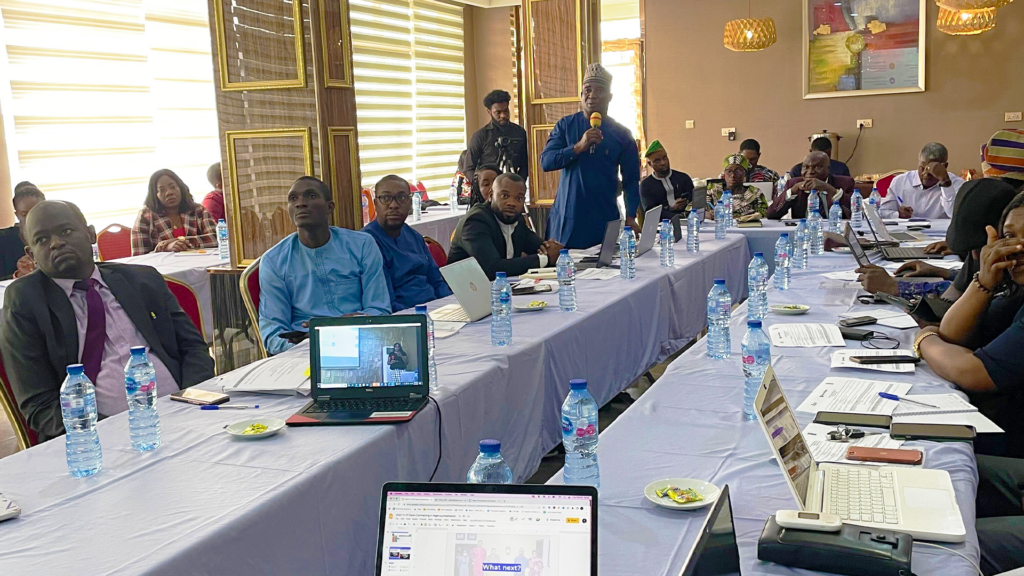
We trained over 45 implementing staff to collect and publish the required data fields, and to develop an action plan based on their analysis. We helped them map information to the Open Contracting Data Standard and to define their Standard Operating Procedures for data capture, publication and analysis. EDPPA procurement officers can now use a well-structured data extraction template to extract data and ensure consistency and accuracy in the data publication and analysis process.
Currently the data has to be manually lifted and shifted from the e-GP system to the open contracting portal but this will be pulled and updated automatically by the end of the month (December 2022) to ensure that all contracting data is accessible from one platform.
New partnerships
The EDPPA is teaming up with Ekiti and Plateau States on a United Nations Development Programme (UNDP) project being run by Accountability Lab (with support from OCP) to build on the work improving data, skills, and processes in Edo State, including reviving Edo Monitor Me, the government’s feedback system, which will act as a reporting and complaint platform for suppliers and the general public.
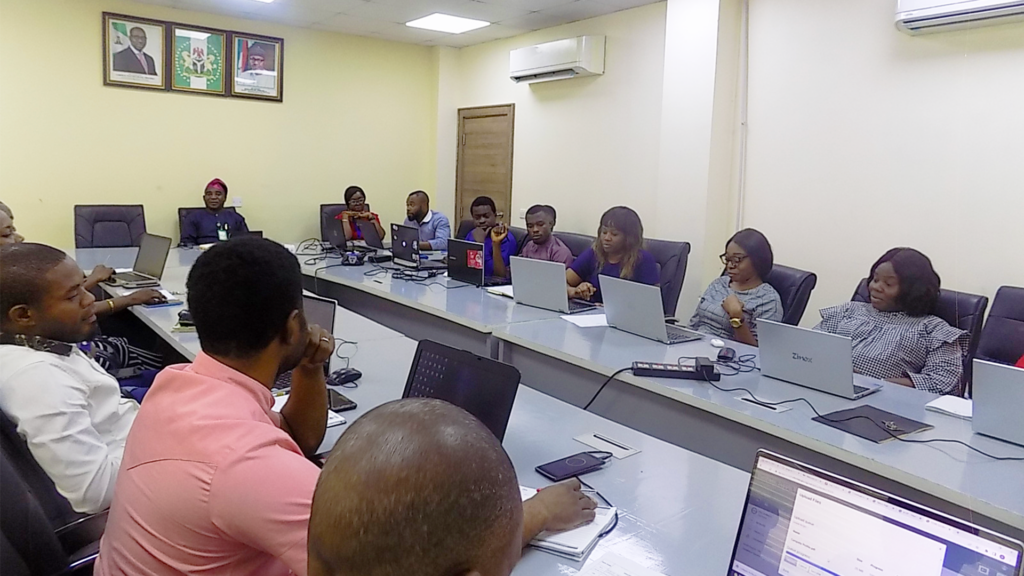
Accountability Lab and OCP also held a hackathon series across the three pilot states on how data-driven tools can be used to fight corruption in public contracting through project monitoring, advocacy, and feedback. Some 27 participants including media personnel, civil society actors, and techpreneurs were in attendance.
With support from OCP, civic tech group Dataphyte works with local CSOs to monitor around 60 procurement projects on health, education, water and electricity worth N50 billion (US$120 million) in three states, including Edo State. Dataphyte has also trained journalists, CSOs and community-based organizations on accessing e-procurement portals, analyzing the data, and investigating public projects for better service delivery.
And the Edo government itself is exploring a monthly briefing to engage civil society and media stakeholders, and support them to better use the OCDS data available.
“Our exposure to open contracting data by Dataphyte and the training on how to use the datasets to demand transparency and accountability of public funds is an eye-opener for us on how to hold the government accountable in the state” said Grace Ese Obakina, a public procurement activist in Edo State.
Edo is offering itself as an e-GP reform test case in the region. 18 Nigerian states, Liberia, and Gambia have reached out to learn more about EDPPA’s e-procurement model and now it might be applied to them. As Henry Idogun said to us: “They heard what we are doing and they wanted to emulate some of the things we have implemented. It is exciting to be recognized globally.”
Next steps
The EDPPA team is the first to admit that the reforms are still a work in progress. The top issue on their mind is that the SaaS e-GP solution was externally driven by World Bank financing and support and that the support for reforms needs to be sustained.
They are keen to extend the reach of the e-GP much further than the four focal ministries to the e-GP framework agreement to cover contract implementation and payment. Currently, the agency relies on physically monitoring the progress of projects itself. The vendor payment system is not completely under the agency’s purview which can mean long delays (and also more corruption risks).
In addition, the EDPPA applied to purchase an SSL certificate for their OCDS portal over a year ago but is still awaiting approval from the state ICT agency.
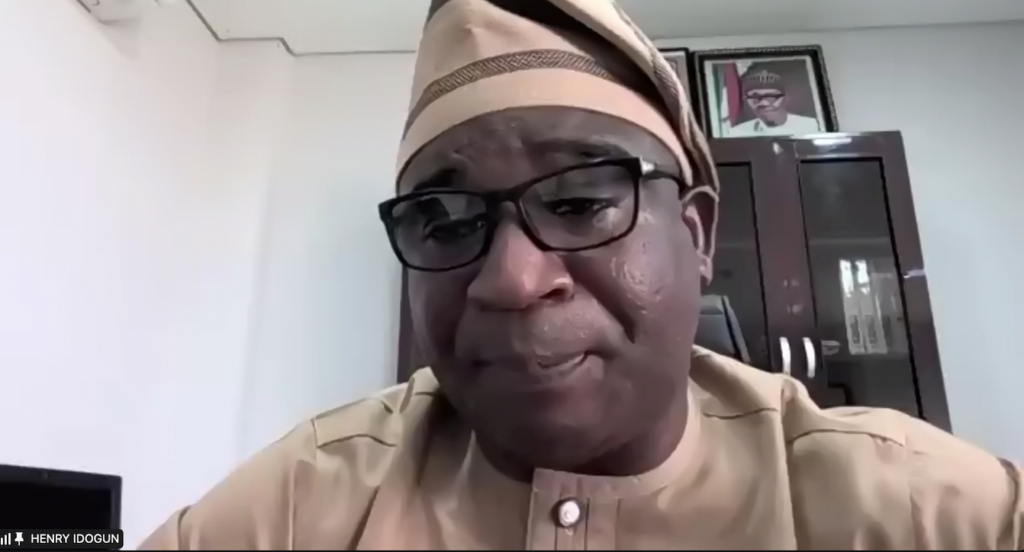
Overall, the team remains ambitious, with Idogun reflecting: “Having a more structured and complete contracting data published is key to our mandate of promoting transparency and inclusive governance. We will not relent in our drive to ensure transparency, accountability and value for money in all procurements, as we owe it to the good people of Edo State to ensure the dividend of true democracy is felt and enjoyed by all.”
Edo state demonstrates that with strong leadership support and wide stakeholder engagement, a locally led reform is possible.
There is more to do for sure, but we’ve been excited to collaborate with Edo and its many stakeholders so far. We’ll be reporting back regularly on developments, lessons and challenges as Edo makes further progress in taking its procurement open and digital.